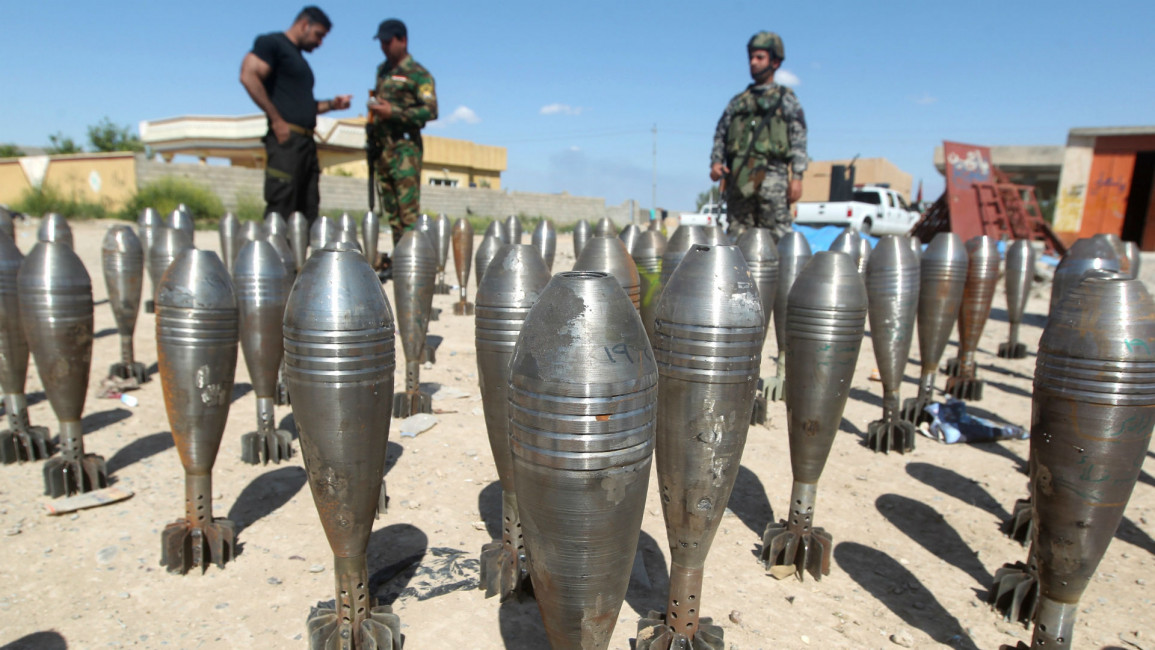Battle for Tikrit raises fear of militia revenge attacks
Shia militias will carry out revenge attacks against Sunni residents.
Iraq's major offensive to retake Tikrit from so called Islamic State group (IS) is being stalled by bombs planted by the fighters holding out in the city, a militia spokesman said Tuesday.
Meanwhile, an Iraqi Kurdistan intelligence chief has raised concerns over the estimated 20,000 Shia Muslim militias fighting with Iraq's army against Islamic State (IS).
"The battle to retake Tikrit will be difficult because of the preparations IS has made," said Jawwad al-Etlebawi, spokesman for the Asaib Ahl al-Haq, a Shia militia that is playing a major role in the operation alongside the regular army.
| If revenge retaliation between sects happens, then this will become a much more difficult problem |
"They planted bombs on all the streets, buildings, bridges, everything. For this reason, our forces were stopped by these defensive preparations," Etlebawi said.
"We need forces trained in urban warfare to break in," he said, adding that the fighters are surrounded, "but any besieged person fights fiercely."
However, in an interview with the BBC, Masrour Barzani said that the use of Shia militias could create a bigger problem than IS itself by exacerbating tensions with Sunni Muslims.
"All of us have to together fight ISIS. But if revenge, retaliation between sects or religions, ethnic groups happens, then this will become a much more difficult problem" Barzani said.
The operation to recapture Tikrit, the capital of Salaheddin province, began on 2 March. Iraqi forces have tried and failed three times before to retake the city, which was the hometown of executed dictator Saddam Hussein.
While Iraqi forces succeeded in surrounding the city and retaking towns across the Tigris river to the east, gaining ground inside it has proved much more difficult.
Staff Lieutenant General Abdulwahab al-Saadi, the top army commander for Salaheddin, said on Sunday that the forces attacking Tikrit needed air support from the US-led coalition.
Saadi said that he had asked the defence ministry to make the request to the coalition, but that no air support had been forthcoming.
Civilian concerns
Amnesty International's Donatella Rovera expressed concern that civilians were at great risk in the huge military operation to retake Tikrit.
Tens of thousands of people have been displaced by the offensive. Tikrit once had an estimated population of 200,000 but it is unclear how many civilians remain there.
Human Rights Watch documented numerous atrocities against Sunni civilians by pro-government militias and security forces after they retook other towns.
Iraqi Prime Minister Hayder al-Abadi has previously urged government forces to exercise "utmost care in protecting civilian lives and property" in the fighting, as Human Rights Watch said that in the past they have shown little respect for civilians' lives.
However, the Institute for the Study of War said it had received reports that ISIS fighters had used "an unspecified number of civilians as human shields" in Tikrit.



